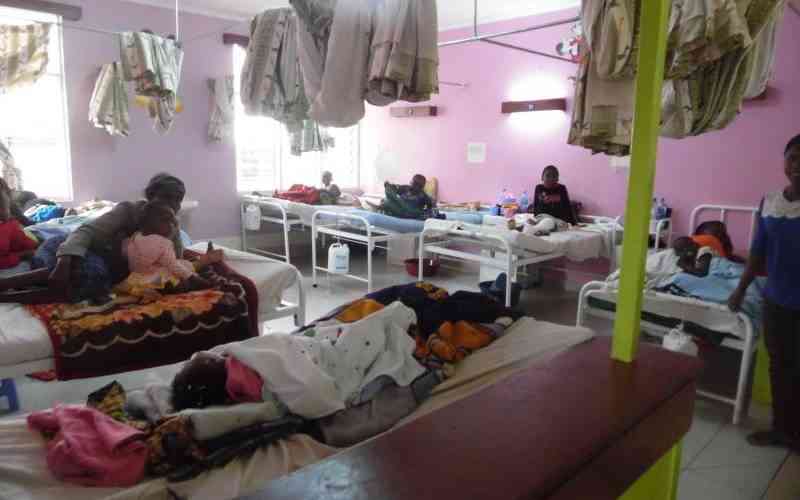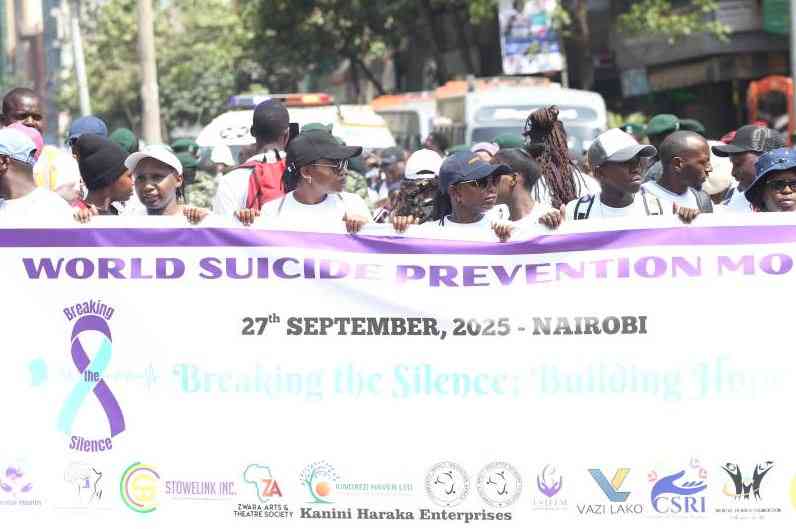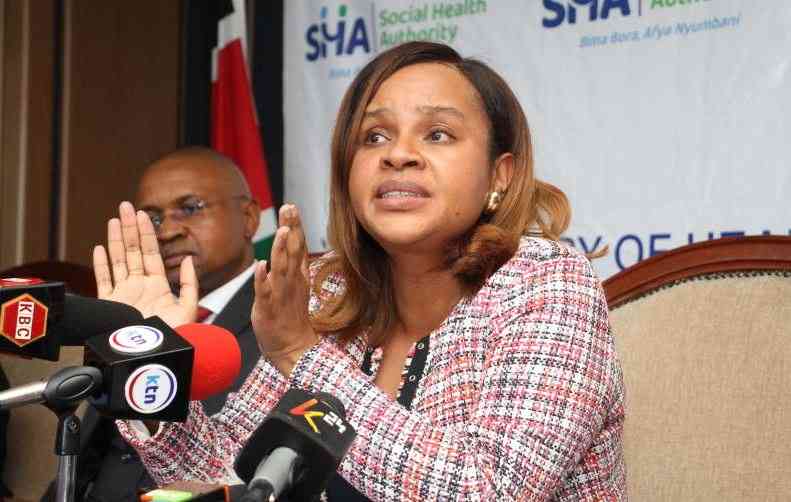Kiambu's Cry for Life: Infant Deaths & Healthcare Collapse Spark Public Fury

The health sector in Kiambu County has been gripped by a severe crisis following a prolonged doctors' strike in 2016, leading to widespread suffering and tragic loss of life, particularly among infants. This paralysis prompted Members of Parliament to implore the national government to intervene and take over health functions in the county, citing the deepening crisis which by then had claimed the lives of 136 children.
The human cost of the strike is starkly illustrated by the personal accounts of affected families. Hellen Wanja, a mother who delivered at Thika Level Five Hospital, expressed profound disbelief and grief over the loss of her newborn. She attributed her baby's death directly to the strike, lamenting the absence of specialized medical care. Wanja's preterm child, initially thriving for three months, succumbed when the strike intensified, leaving only interns and nurses to attend to vulnerable newborns. She recounted the ineffectiveness of management and the lack of proper assessment, believing her child could have survived if doctors were present to detect problems early. The tragedy not only resulted in the loss of her child but also her job and social support, leaving her emotionally and financially devastated.
Stephen Thairu shared a similar harrowing experience, losing his three-day-old newborn at Thika Level Five Hospital after his wife developed complications. Despite a caesarean section being performed, his child died, and he never received a clear explanation from a doctor, with interns attending to his wife afterwards. These individual stories are part of a larger, devastating trend.
Between May and September, data reveals 152 newborn deaths across Thika Level 5 (66 deaths) and Kiambu Level 4 Hospital (86 deaths), with Kiambu Level 4 alone recording 34 deaths in September. The crisis also extended to maternal health, with five maternal deaths reported in Thika, and single deaths in Kiambu, Kihara, and Ruiru since May. These figures contradict claims by the Kiambu county leadership of having zero maternal deaths in May, highlighting a significant discrepancy in reporting and accountability.
Beyond the direct impact of the strike, systemic issues exacerbated the healthcare crisis. Management was deemed ineffective without the presence of doctors, relying heavily on less experienced interns and nurses. Furthermore, the Social Health Authority (SHA), intended to provide care, reportedly failed to fully cover medical expenses for many mothers, forcing them to purchase medicines from private chemists and leading to allegations of women being detained in hospitals for unpaid bills or opting for home deliveries. This situation has compelled lobby groups to intervene and secure the release of patients.
The alarming state of healthcare in Kiambu has drawn widespread attention from healthcare workers across the county, with unions threatening to join demonstrations in solidarity. The crisis in Kiambu County reflects a broader national challenge, with statistics from the Ministry of Health indicating that Kenya tragically loses 21 women at birth and at least 92 newborns every single day.
You may also like...
Super Eagles Shake-Up! Osimhen Leads, Iheanacho Dropped as WC Qualifying Crisis Looms

Nigeria's Super Eagles face a critical juncture in their 2026 FIFA World Cup qualifiers, with head coach Eric Chelle nam...
Flying Eagles Stun Saudi Arabia in U-20 World Cup Thriller, Plot Colombia Takeover!

Nigeria's Flying Eagles secured a dramatic 3-2 victory over Saudi Arabia at the FIFA U-20 World Cup, reigniting their qu...
Raoul Peck's 'Orwell: 2+2=5' Terrifies Critics, Unveiling Orwell's Enduring Relevance

Raoul Peck's documentary "Orwell: 2+2 = 5" explores George Orwell's "Nineteen Eighty-Four" and its chilling contemporary...
Pop Queen's Secret: Taylor Swift's New Album Ignites Fierce Baby Rumors

Taylor Swift's latest album, "The Life of a Showgirl," released October 3, contains significant hints about her future w...
Royal Rumble: Prince William's Childhood Comments Threaten King Charles' Calm

Prince William has opened up about his parents' divorce and the profound impact of childhood stress in a candid discussi...
Shocking BBNaija Disqualification: Faith Adewale Kicked Out for Assaulting Sultana

Big Brother Naija Season 10 housemate, Faith Adewale, has been disqualified just three days before the grand finale afte...
Fragrance Obsession: Insider Reveals Must-Have Lush Scents From Epic 150-Bottle Collection!

Lush superfan Jenn unveils her impressive collection of 150 fragrances, including personal favorites like Karma and the ...
B&M Drops Sensation: P.Louise Lip Kit Dupe for Just £3!

A shopper has uncovered remarkably similar 'dupes' of P.Louise's £22 lip kits at B&M for just £3, sparking excitement am...




